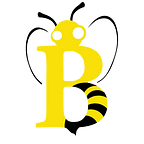What does social awareness education do for kids?
If you want to hear it straight from the children, we let them speak on critical thinking through civics. Check it out below.
How can parents make sure their children are critical thinkers? This time, our buzzword is “agency”, a word with multiple meanings. Here’s the definition you should think about today. Agency describes the ability of individuals to make their own decisions and take their own actions. By contrast: someone’s gender, their ethnicity, or some other social factor, might discourage (or even prevent) them from doing what they really want to do. That’s not what we want for our children, so… how do we give agency back to the youth?
It really does start young. Kids grow up internalizing ideas that go against their natural desire to be anything they want to be. Many who can attest to that are teachers, like Suzanne Methot. She’s also a public speaker and author who does her legwork travelling to Indigenous communities. Why? To get the most authentic input for the publications our kids are being taught with. Suzanne is an all-around educator with passion for making sure social awareness is thoroughly infused into our kids’ classrooms and curriculums.
“When you make the curriculum really relevant to your students’ lives, they’re immediately engaged. There’s no disengagement if you’re talking about what was on the news yesterday — if you’re talking about something that happened in the community yesterday. Absolutely none. Relate those current events to the subject you want to teach.”
- Discuss appropriate, relevant, societal circumstances and ask questions like: how can we make this better?
“Start developing in students a critical consciousness. It isn’t about teaching what to think. People get to have different opinions and make their own sense out of things. What teachers impart is: how to think. How to think critically about an online source. How to be media savvy.”
- Get them used to asking: should I believe this or should I not believe this? Why would this source be framing it this way?
As children learn, they develop a sense of social identity based on their knowledge of culture, history and current events. When this happens, we want them to see themselves as capable of making a difference in their communities. That’s the first step to changing the world. Agency.
But a lot of that responsibility falls on the shoulders of our education system. So how can parents be proactive?
Parents, you’re already stressed enough with everything going on. Sometimes, your kids ask you questions and honestly you’re kind of winging it for the answer. But, of course, you want the very best help to develop your child’s potential; here’s what you actually need to know like the back of your hand:
You don’t need to know everything at a superstar level, you just need to know what accessible services are available to you.
Quick caveat: things are a bit different due to this pandemic. Also, not everyone is privileged financially. We take that into account. Consider this:
Start with libraries. If you’re looking for something in particular or even just a direction, they’ll have bulletin boards and librarians that know what’s going on in your community.
Speaking of… stay tuned because next we’ll cover how you can make the most of libraries, in ways you never thought of!
Some other ideas: community centres, literacy organizations, reading festivals, arts festivals, weekend activities at local museums and heritage sites, kids’ summer programs, and more. Most of these can be free, especially if run by non-profits.
Find anything that gives your kids the chance to get out into the world. Let them pursue what they want to pursue. Just go with it. You have to give them opportunities to explore. Bottom line for tired parents: sometimes all you really need to know is where to get programming that’s best for your kid.
For now, check out our Spelling Bee kids’ thoughts on critical thinking!
🐝 Thanks! You just read Buzzword, where Spelling Bee of Canada spotlights rare words that widen your perspective. For more fun language arts reads and videos, subscribe to Buzz News!
Stay tuned for our new podcast to hear Suzanne Methot’s experience spearheading social justice in schools: alternative assessments, Indigenous issues, and many more insights!
Fran Mbadiwe is an editor who runs SBOC’s Buzz News. Apart from that, he’s probably journaling.
